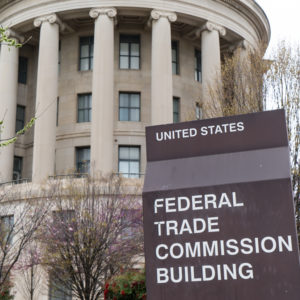On Nov. 10, a majority of the Federal Trade Commission board voted in favor of a new “Policy Statement Regarding the Scope of Unfair Methods of Competition Under Section 5 of the Federal Trade Commission Act,” replacing a previous “Statement of Enforcement Principles Regarding ‘Unfair Methods of Competition’ under Section 5 of the FTC Act,” rescinded by the commission July 1, 2021.
At the time of the rescission of the prior FTC policy statement, newly appointed FTC Chair Lina Khan wrote that this prior statement had “abrogate(d) the Commission’s congressionally mandated duty to use its expertise to identify and combat unfair methods of competition even if they do not violate a separate antitrust statute.”
Approved on Aug. 13, 2015, the bipartisan-backed, one-page “Statement of Enforcement Principles Regarding ‘Unfair Methods of Competition’ under Section 5 of the FTC Act” recognized that the Congress had not specified these “unfair methods of competition,” i.e., specific acts and practices, instead recognizing that enforcement of the statute would have to evolve with changing markets and business practices and would be applied on a flexible case-by-case basis.
This previous FTC policy statement consisted of three foundational principles: first, the promotion of consumer welfare is recognized as the public policy underlying the antitrust laws; second, the act or business practice would be evaluated under a framework similar to “rule-of-reason” analysis, considering whether specific business conduct is likely to harm competition by weighing the conduct’s benefits against its costs; and third, the agency would be less likely to challenge the act or business practice as an “unfair method” on a standalone basis if enforcement to sufficiently address competitive harm is undertaken under the Sherman or Clayton Act.
In contrast, the new 15-page FTC policy statement contains the key principles that the FTC will use to assess whether conduct is an actionable “unfair method of competition.” Explicit in the new FTC policy statement is that “the (FTC) inquiry will not focus on the “rule of reason” inquiries more common in cases under the Sherman Act, but will instead focus on stopping unfair methods of competition in their incipiency based on their tendency to harm competitive conditions.”
Thus, identified “incipient threats” — not actual competitive harms — become prima facieviolations and challengeable conduct. Examples of such incipient threats could include categories of conduct that tend to generate negative competitive consequences, e.g., price increases, output or quality reductions, innovative reductions, or reducing the likelihood of competition.
This new FTC policy statement also includes a non-exhaustive list of 20 categories of conduct that the agency might consider an “unfair method of competition.”
While the new FTC policy statement skeptically acknowledges there are affirmative defenses to prima facie Section 5 violations, it explicitly rejects attempts to defend allegedly unfair conduct using a “cost-benefit analysis” defense focusing solely on quantifiable metrics.
Commissioner Christine Wilson, who cast the dissenting vote against the new FTC policy statement, released a lengthy argument that it allows the FTC to summarily condemn “any business conduct it finds distasteful” and calls the new standard one of “I know it when I see it.”
Wilson further argues that the use of adjectives like “coercive,” “exploitative” and “restrictive” in the new FTC policy statement is open to subjective interpretation and lack “established antitrust or economic meanings.”
Moreover, Wilson states that by rejecting the consumer welfare standard for a stakeholder approach that considers interests like those of employees and “inefficient competitors,” the enforcement of Section 5 may be contrary to the principle that the antitrust laws promote “competition, not competitors,” and therefore become “subject to the whims and political agendas of the sitting Commissioners.”
The U.S. approach to antitrust enforcement has had a significant influence on the evolutionary form of American corporate capitalism. In his seminal research project, Neil Fligstein, an economic sociologist, found that antitrust policy changes had major influences on how U.S. firms developed their business strategies and organizational structures, with firms choosing their strategies largely to stabilize their environments and achieve greater certainty in their competitive environments.
This new FTC policy statement — echoing an interpretation of European Union “competition policy” — does not appear in its content to contribute to future stabilization nor increased firm management certainty. While these new guidelines do not prohibit legitimate competition on their merits, the federal judiciary will ultimately decide whether they are a sound legal interpretation of the commission’s authority under Section 5.

